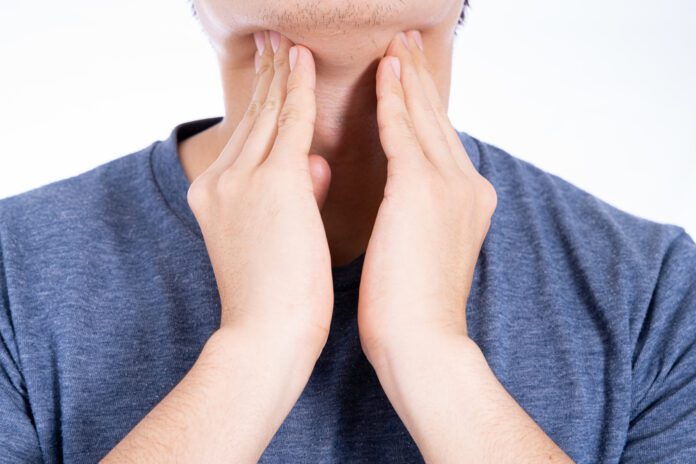Overview Of Thyroid Nodules
A thyroid nodule is a growth (lump) in the thyroid gland. The thyroid gland is located at the front of the neck, just above where your collarbones meet in the middle.
Commonly Associated With
Thyroid tumor – nodule; Thyroid adenoma – nodule; Thyroid carcinoma – nodule; Thyroid cancer – nodule; Thyroid incidentaloma; Hot nodule; Cold nodule; Thyrotoxicosis – nodule; Hyperthyroidism – nodule
Causes Of Thyroid Nodules
This condition is caused by an overgrowth of cells in the thyroid gland. These growths can be:
- Not cancer (benign), thyroid cancer (malignant), or very rarely, other cancers or infections
- Fluid-filled (cysts)
- One nodule or a group of small nodules
- Producing thyroid hormones (hot nodule) or not making thyroid hormones (cold nodule)
- Nodules are very common, and occur more often in women than in men. A person’s chance of getting them increases with age.
Only a few thyroid nodules are due to thyroid cancer. A nodule is more likely to be cancer if you:
- Have a hard nodule
- Have a nodule that is stuck to nearby structures
- Have a family history of thyroid cancer
- Have noticed a change in your voice
- Are younger than 20 or older than 70
- Have a history of radiation exposure to the head or neck
- Are male
Causes of nodules are not always found, but can include:
- Hashimoto’s disease (a reaction of the immune system against the thyroid gland)
- Lack of iodine in the diet
Symptoms Of Thyroid Nodules
Most nodules do not cause symptoms.
Large nodules can press against other structures in the neck.
This can cause symptoms such as:
- A visible goiter (enlarged thyroid gland)
- Hoarseness or changing voice
- Pain in the neck
- Problems breathing, especially when lying down flat
- Problems swallowing food
Nodules that produce thyroid hormones will likely cause symptoms of the overactive thyroid gland, including:
- Warm, sweaty skin
- Fast pulse and palpitations
- Increased appetite
- Nervousness or anxiety
- Restlessness or poor sleep
- Skin blushing or flushing
- More frequent bowel movements
- Tremor
- Weight loss
- Irregular or lighter menstrual periods
Older people with a nodule that produces too much thyroid hormone may have only vague symptoms, including:
- Fatigue
- Palpitations
- Chest pain
- Memory loss
Thyroid nodules are sometimes found in people who have Hashimoto disease.
This may cause symptoms of an underactive thyroid gland, such as:
- Constipation
- Dry skin
- Face swelling
- Fatigue
- Hair loss
- Feeling cold when other people do not
- Weight gain
- Irregular menstrual periods
Very often, nodules produce no symptoms. Health care providers often find thyroid nodules during a routine physical exam or imaging tests that are done for another reason. A few people have nodules that are big enough that they notice it on their own and ask a provider to examine their neck.
Exams & Tests
If a provider finds a nodule or you have symptoms of a nodule, the following tests may be done:
- TSH level and other thyroid blood tests
- Thyroid ultrasound
- Thyroid scan (nuclear medicine)
- Fine needle aspiration biopsy of the nodule or of multiple nodules (sometimes with special genetic testing on the nodule tissue)
Treatment Of Thyroid Nodules
Your provider may recommend surgery to remove all or part of your thyroid gland if the nodule is:
- Due to thyroid cancer
- Causing symptoms such as swallowing or breathing problems
- If the fine needle biopsy is inconclusive, and your provider can’t tell whether the nodule is a cancer
- Making too much thyroid hormone
- People with this condition that are making too much thyroid hormone may be treated with radioiodine therapy. This reduces the size and activity of the nodule. Pregnant women or women who are still breastfeeding are not given this treatment.
Both surgery to remove thyroid gland tissue and radioactive iodine treatment can cause lifelong hypothyroidism (underactive thyroid). This condition needs to be treated with thyroid hormone replacement (a daily medicine).
For noncancerous nodules that do not cause symptoms and are not growing, the best treatment may be:
- Careful follow-up with a physical exam and ultrasound
- A biopsy repeated 6 to 12 months after diagnosis, especially if the nodule has grown
- Another possible treatment is an ethanol (alcohol) injection into the nodule to shrink it.



